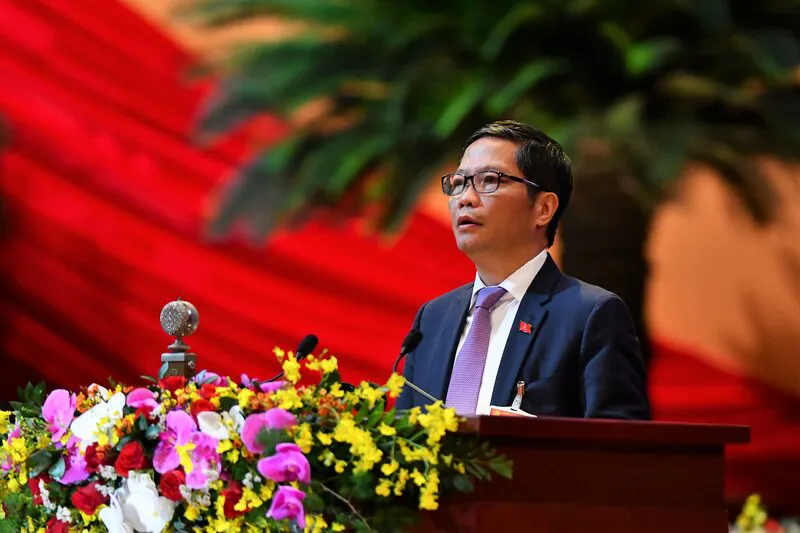Vietnam aims to play active role in global supply chain
While the Covid-19 pandemic further exposes Vietnam’s shortcomings from its highly dependence on both the global supply and demand sides, it is also a golden opportunity for the country to narrow development gap with regional peers.
The capital inflows from multinationals into Vietnam and a strong base of supporting industries would help Vietnam further integrate into global supply and production chains.
| Minister of Industry and Trade Tran Tuan Anh. Photo: Nhat Bac. |
Minister of Industry and Trade Tran Tuan Anh made the statement at the third working day of the 13th National Party Congress on January 28.
“The development of the industrial sector at a time when Vietnam opens its door to the world has been key in cement the country’s role in the global production and value chains,” Mr. Tuan Anh noted.
The UN Industrial Development Organization (UNIDO)’s Competitive Industrial Performance Index 2019 revealed Vietnam ranked 42 globally, up 16 places from the 58th in 2009. This put Vietnam among countries in ASEAN with the strongest progress and stayed close to the Philippines at 5th with a narrow margin of 0.0015 points.
In the 2011-20 period, industrial sector saw the fastest growing rate among economic components and contributed nearly 30% to the overall GDP growth, while industrial products were Vietnam’s key export staples.
“Vietnam moved up to 22th in 2019 from 50th in 2010 among world’s largest exporters,” Mr. Tuan Anh stressed.
So far, Vietnam has formed a number of key industrial sectors such as electronics, telecommunications, IT, cement and construction materials, footwear, garment, and automobile, laying the foundation for the country’s long-term growth and accelerating the modernization process.
According to Mr. Tuan Anh, as the government has been focusing on developing the supporting industries. An ecosystem of supporting industries has gradually been formed and increase the localization rate for industrial products.
“There has been a positive shift with higher proportion of hi-tech products in the industrial sector, which plays a big part in forming large-scale privately-run corporations that is capable of competing globally,” he said, referring to the rise of Viettel, Vingroup, Truong Hai, Thanh Cong or Hoa Phat.
Risks remain
Aside from significant achievements, Mr. Tuan Anh said the country is facing risks of falling into a middle-income trap.
“The majority of production in Vietnam is concentrating on the final stage, which generates low-added value,” he said.
“A lack of linkage between industrial sectors is leading to unsustainable development, while most of local manufacturers have not been able to master production segment of higher added-value,” Mr. Tuan Anh asserted.
As a matter of fact, the foreign-invested sector makes up 70% of Vietnam’s exports, which is a result from the weak linkage between FDI firms and local suppliers.
Meanwhile, with 98% of local enterprises are of small and micro size, the remaining 2% of medium and large ones could not efficiently take the industry-leading roles to spearhead the integration of Vietnam’s industrial industry into global value chains.
While the Covid-19 pandemic further exposes Vietnam’s shortcomings from its highly dependence on both the global supply and demand sides, it is also a golden opportunity for the country to narrow development gap with regional peers.
“The process of digital transformation and emergence of new business models would comprehensively transform traditional production methods,” he added.
Mr. Tuan Anh called for greater urgency in helping form major economic corporations in the industrial sector and turn the private sector into a truly major driving force of the economy, particularly in manufacturing and processing, wholesale, retail, and agricultural production.
The trade minister suggested the draft of new laws covering new fields, as well as creating more favorable environment for businesses.
The government should also enhance capabilities of realizing its commitments in free trade agreements to expand export markets and effectively control imports.
“Higher role in the global value chains while maintaining economic independence are key for Vietnam to overcome current challenges and pursue sustainable development in the future,” concluded Mr. Tuan Anh.












